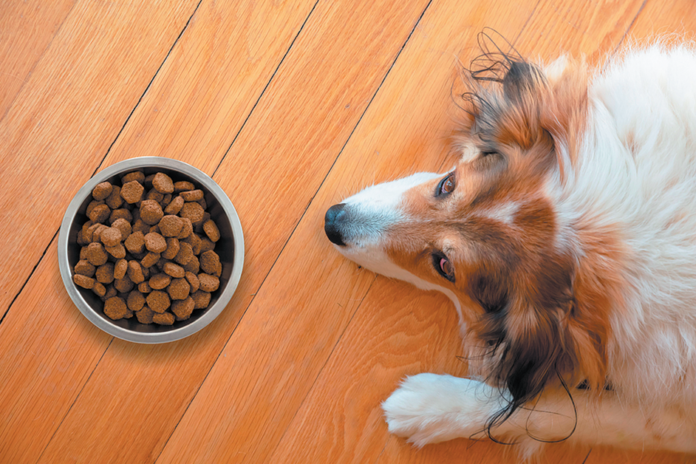There’s no shortage of advice on the Internet for what to feed a dog who is having temporary GI upset, either with vomiting, diarrhea, a gurgling stomach, or a combination of those untoward symptoms. The advice often comes down to the suggestion to give a pet a little boiled or plain roasted chicken with rice. “The…starch in white rice helps bind the stool and calm the gut,” one website says.
On the face of it, the recommendation appears to make sense. Plain chicken and rice are easily digested, and if skinless chicken breast is used, low in fat. So for some pets with acute gastrointestinal conditions, this combination may help.
But for other dogs, the best bet is often to keep feeding the foods they usually eat and to make sure they always have fresh, cool water available, says board-certified veterinary nutritionist Cailin Heinze, VMD. Depending on the dog, introducing a dish she doesn’t usually eat can actually serve to exacerbate the problem. In fact, in normal situations, it is recommended that even when switching from one dog food to another, it should gradually take place over a week’s time so your pet’s digestive system has a chance to acclimate to the new diet. Introducing a new food when your pet doesn’t feel well (but might be tempted to eat by the scent of the chicken and the novelty of the food) could make a transient GI problem worse, especially in pets with a history of being sensitive to dietary changes.
Feeding chicken and rice can also encourage some pets to refuse to eat their regular diet when you try to switch them back. And chicken and rice, if not properly balanced with appropriate vitamins and minerals (which is extremely difficult for a pet owner to do without the assistance of a board-certified veterinary nutritionist or computer software designed for the purpose), can cause serious health problems when fed long-term.
We understand the desire to want to do something when your dog doesn’t feel well. But the best thing to do in many cases is simply stay the course and wait it out — and take your pet to the veterinarian if she’s not back to herself within a couple of days or if she can’t stop vomiting, is weak, or has bloody or very foul diarrhea. Ongoing vomiting or diarrhea can lead to serious dehydration, among other issues.
In some cases, rather than telling you to cook for your pet, your vet might recommend using a special therapeutic diet that is nutritionally balanced and designed for pets with gastrointestinal issues. These diets are tested for their digestibility and often include ingredients selected for their ability to decrease inflammation and nourish the gut lining and gut bacteria.





